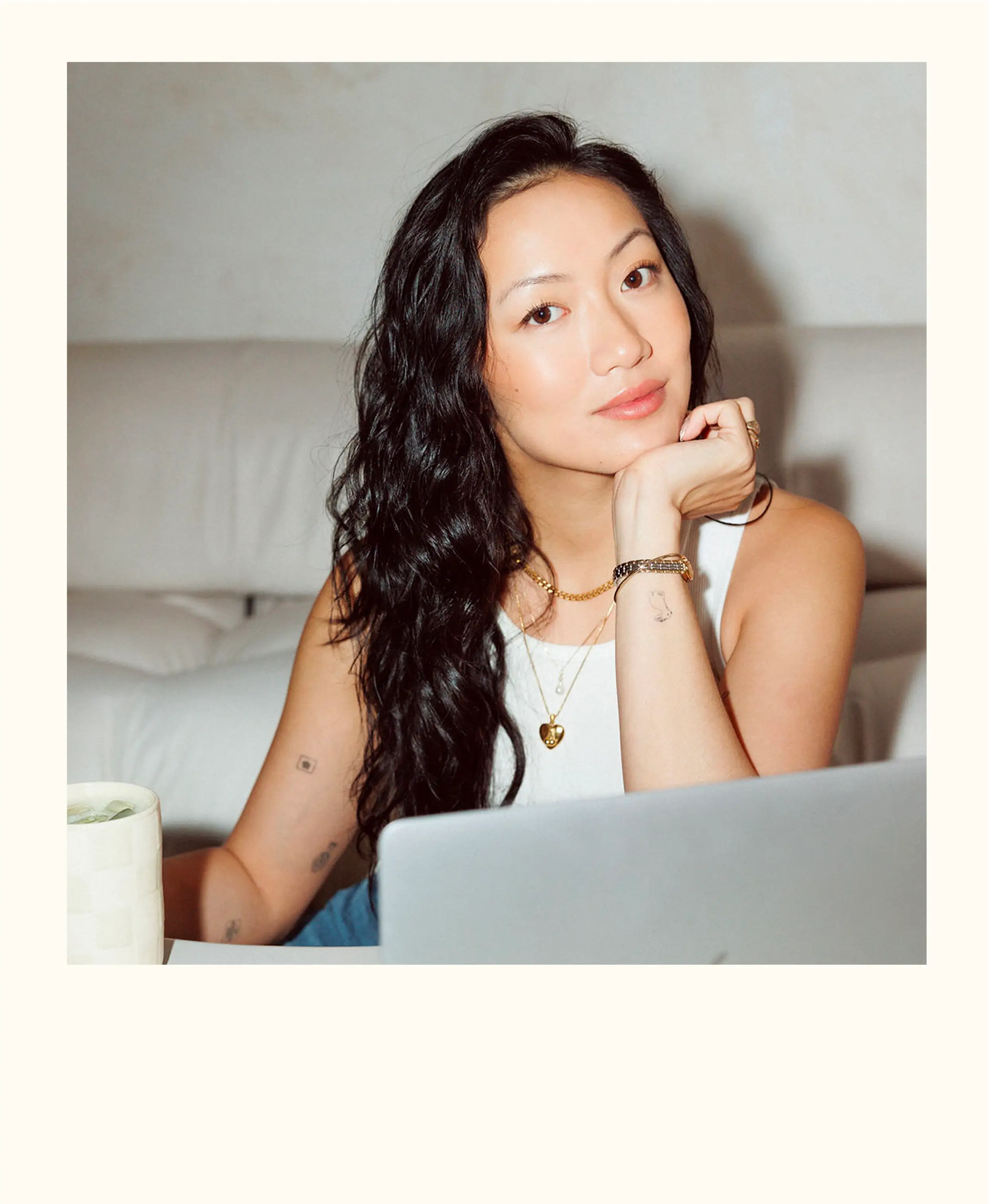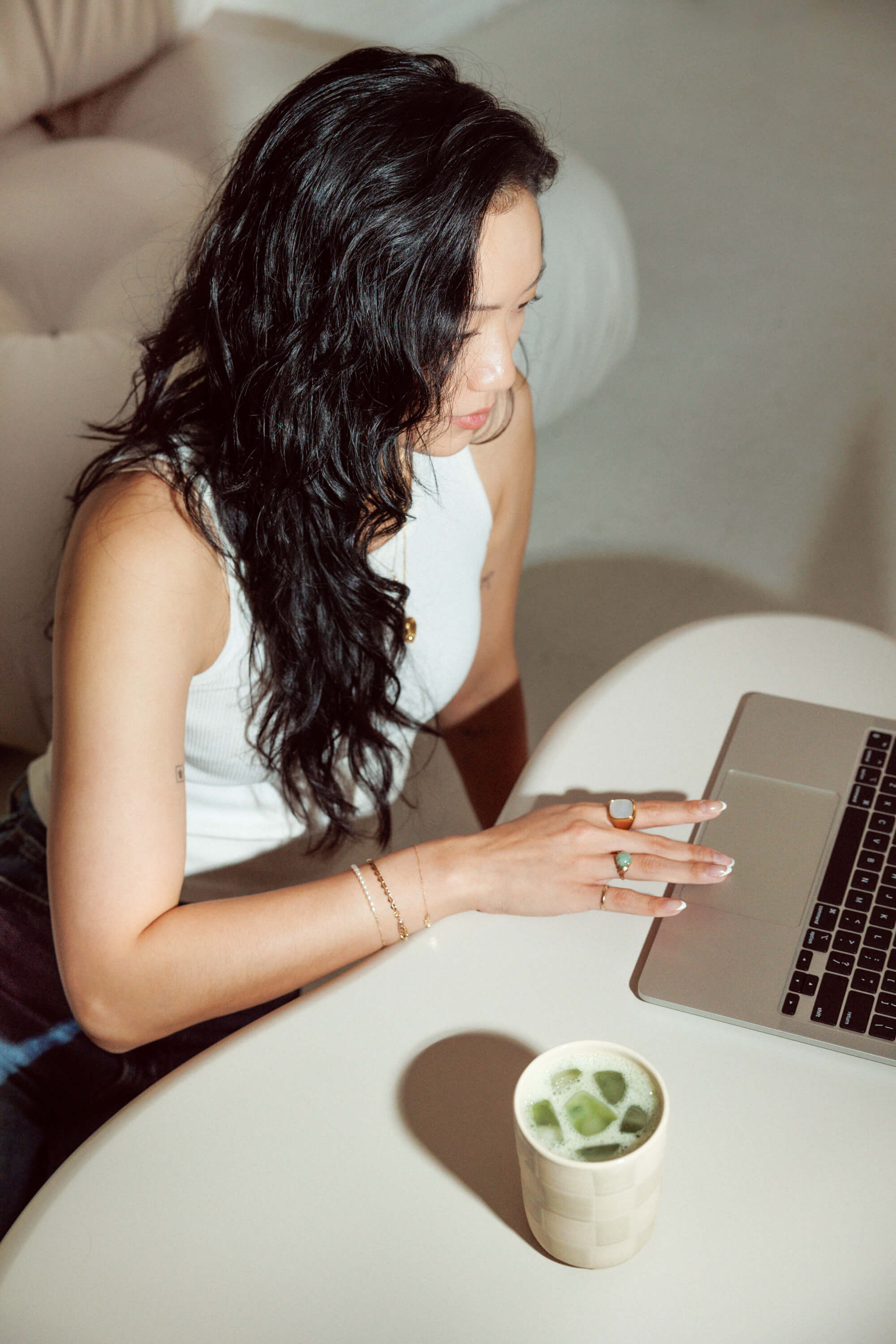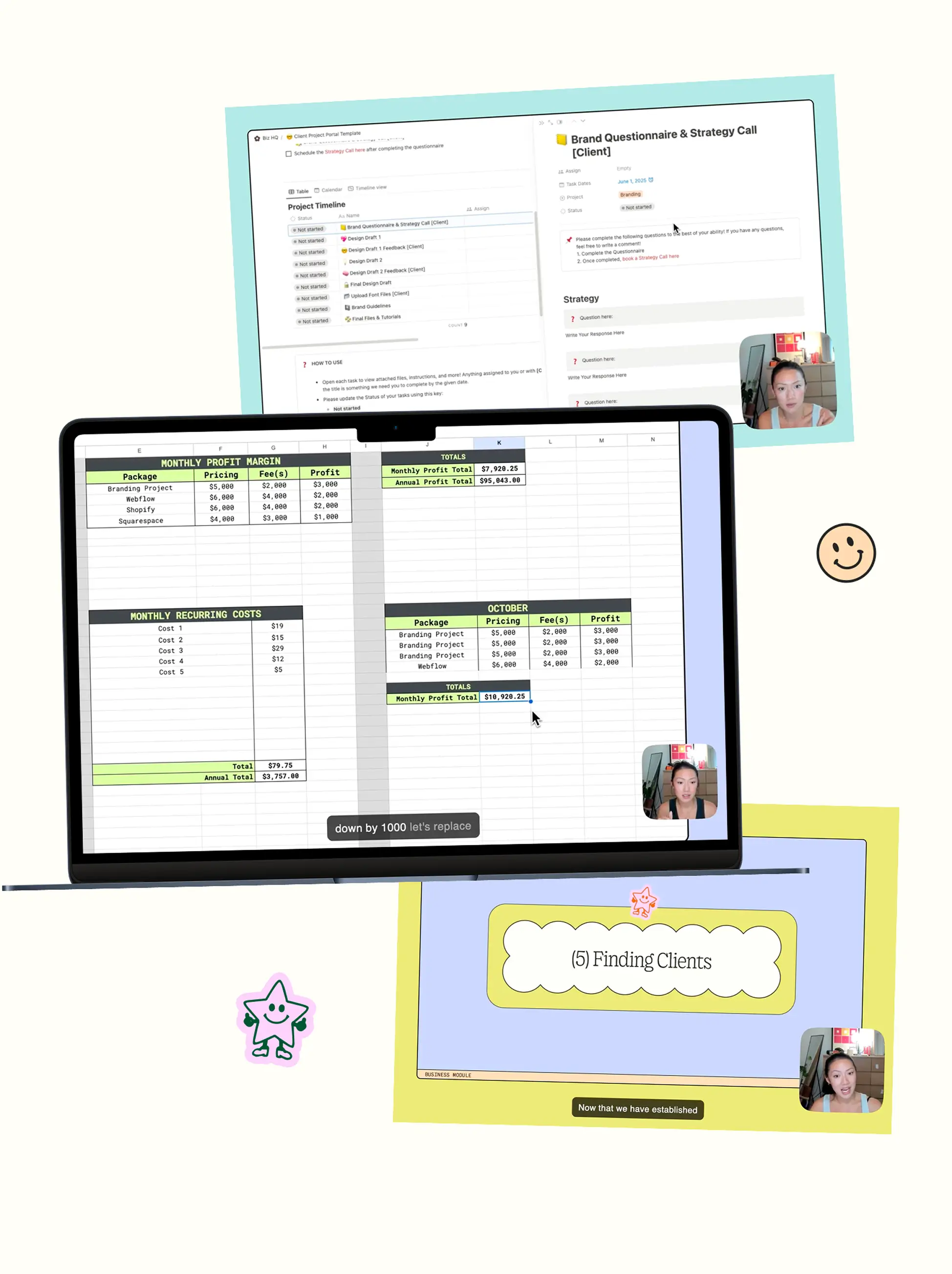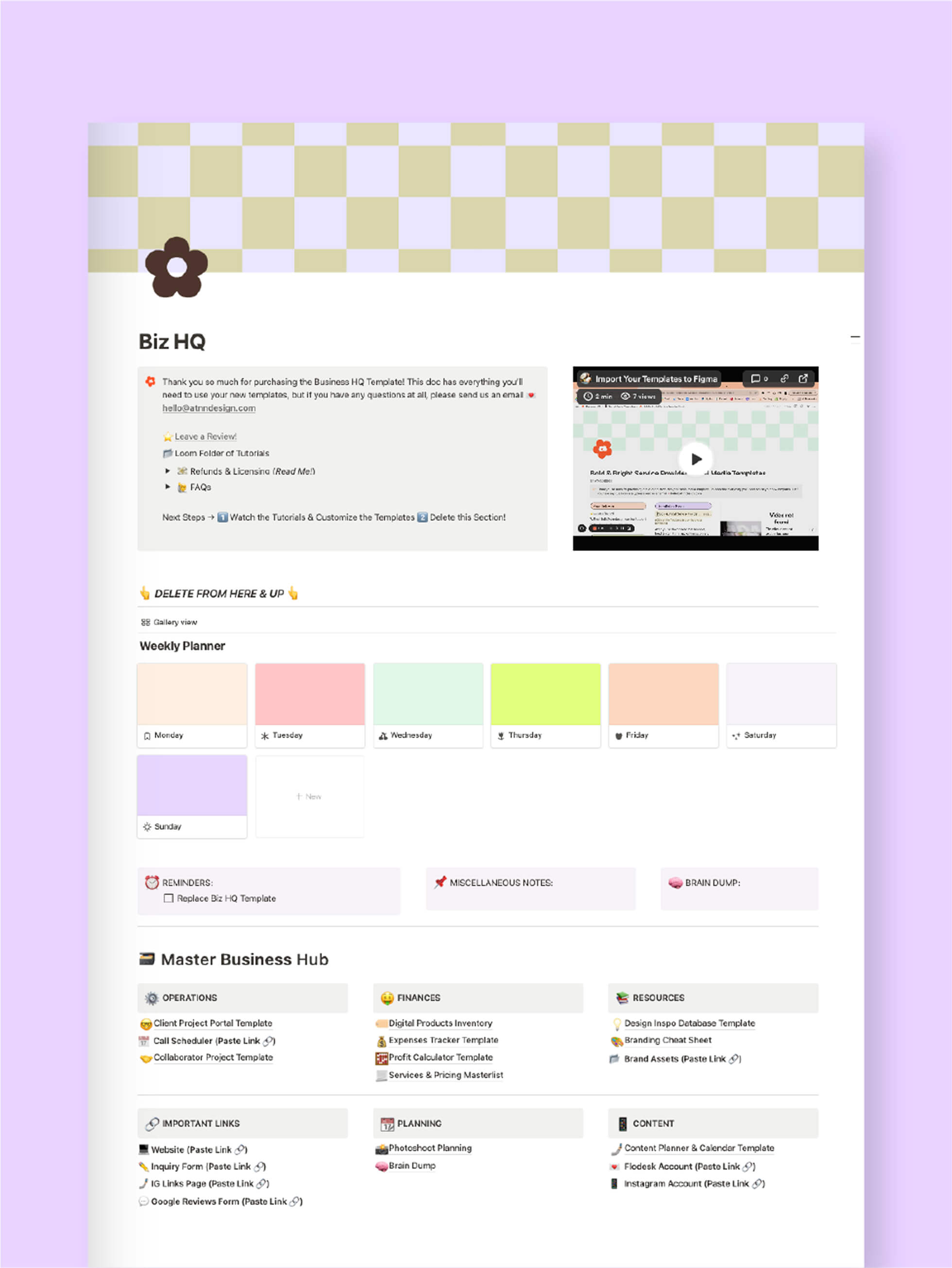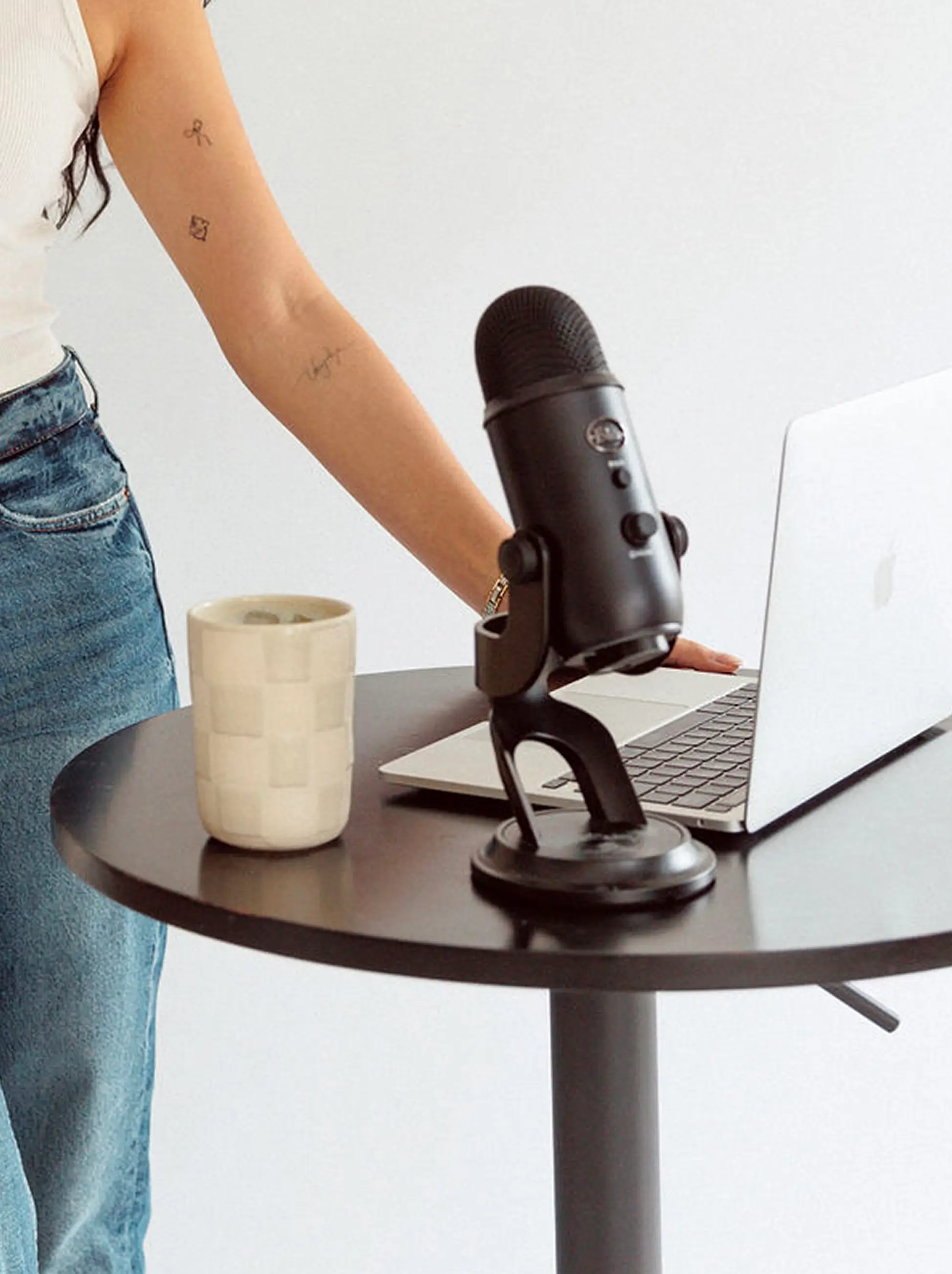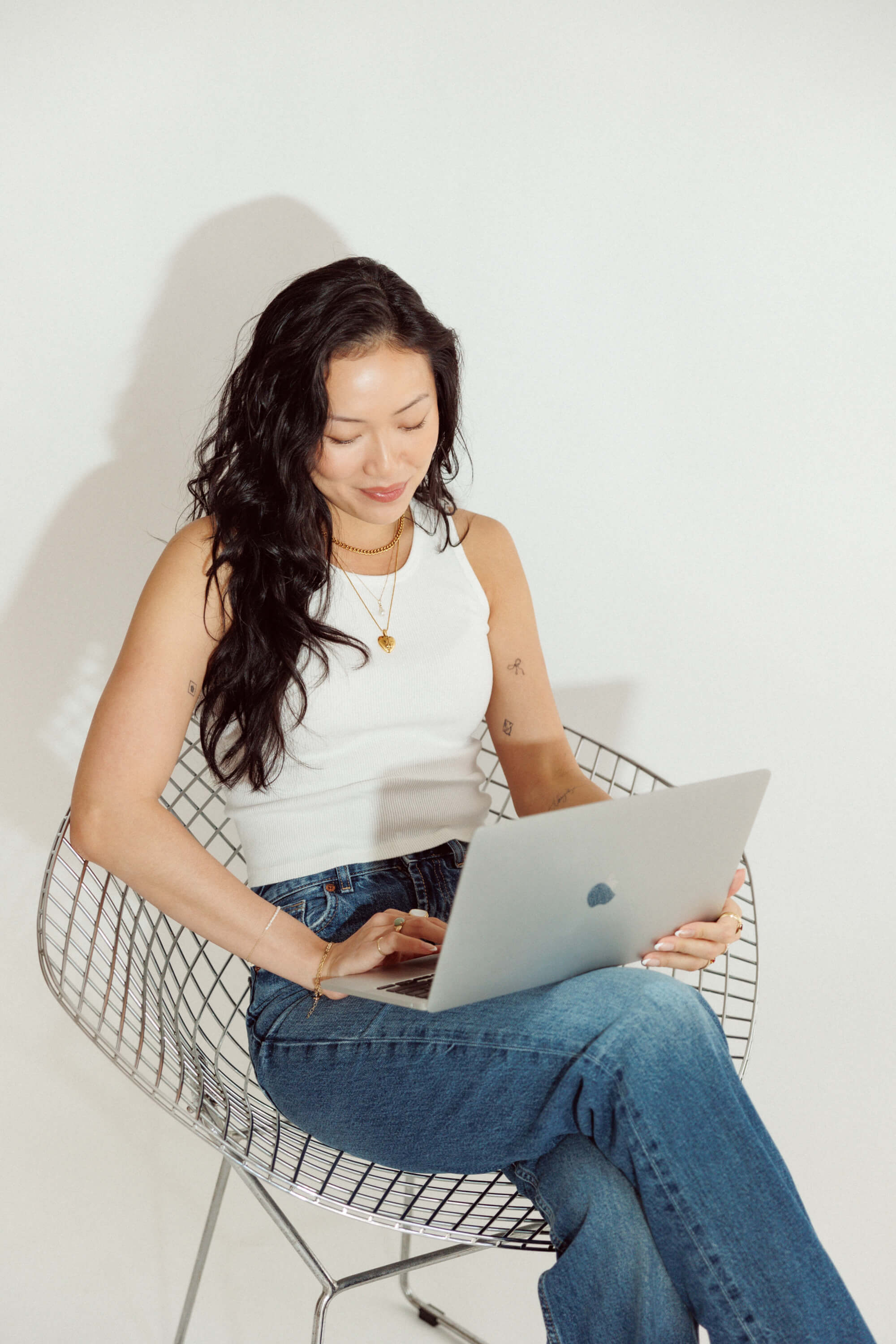
5 Branding Essentials Every Business Needs

If you’re just getting started (or even if you’ve been around for a minute), nailing down your branding essentials is non-negotiable. Branding isn’t just about looking pretty, it’s about creating recognition, consistency, and trust. Whether you’re DIY-ing your brand or working with a designer, here are 5 must-haves that every small business needs to set themselves up for success.
1. Brand Keywords
You might hear them called brand descriptors, keywords, or even your “brand vibe,” but the job is the same: these are the words that define your brand’s essence. They’re like little breadcrumbs that help you (and your designer) stay on track. Your keywords should describe both aesthetic and intrinsic values basically how your brand behaves, feels, looks, and acts. Without them, it’s way too easy to wander off course and end up with a messy, disconnected brand.
Let’s look at an example. When you think of Rhode, Hailey Bieber’s skincare & makeup line, what words come to mind? Minimal, clean, modern, soft, effortless. These keywords guide everything: the packaging, the fonts, the colors, even the way Rhode talks to its audience. As a consumer, you can feel these keywords in every part of the brand. That’s the magic of having a solid foundation.
So, start with 3-5 brand keywords. Trust me, they’ll keep you grounded and make sure every touchpoint from your website to your social posts feels cohesive.
2. Typography with Formatting
Typography is so much more than just picking a cute font. Your brand’s typography suite includes everything about how text is used: which fonts, when to use them, and the specific rules for formatting things like capitalization, spacing, weight, and size. These details are what take your brand from “cookie cutter” to memorable.
I could name countless examples, but some of my favorites are Graza, Ghia, and Vacation.
- Graza has that culinary nod with a touch of home cook, artisanal, warm kitchen vibe without feeling old or out there and a HUGE part of that is from their font choices and the way they're used.

- Ghia is giving chic, modern, slightly art deco, and fun—remove the fonts from the brand and you lose that brand vibe quicklyyyy.

- Vacation's whole brand is built on nostalgia and retro vibes, and the fonts are arguably the most important factor in making that happen.

Make sure your brand has a typography suite with clear rules that keep it consistent across everything you create. A good designer can help you refine this, take your time to choose fonts and formatting that scream you.
3. Color Palette with Usage
Your color palette is one of the fastest ways to make your brand recognizable. First impressions? Colors are doing the heavy lifting there. But beyond that, a well-designed color palette gives you rules for pairing colors, when to use accents, and how to keep things looking sharp and cohesive.
Let’s take Skims as an example. If you’ve seen this brand, you know their color palette has the signature nude tones. The colors are arguably pretty commonplace, but they're consistently used and the cornerstone of their productand (and they’re used everywhere from their packaging to their Instagram). You can’t think about Skims without picturing those colors.
Another example? Sure. Take Maev, a dog food brand that only uses one color and B&W as their palette. They don't own lime green and it's not like we'll see the green and think of this dog food brand. BUT, it is true that it's something unique to them in this space and sets them apart from other dog brands. Since they only have the one color, it's also SO important that they have consistent usage of it (imagine if the web designer decided to use it everywhere and then it's no where on the Instagram...people would be confused, no?)

Your palette should have:
- Main colors (the stars of the show).
- Accent colors (supporting players).
- Usage rules (what pairs with what).
Consistency is key. You want your audience to see your colors and think, yep, that’s [ them ].
4. Logo Suite with Usage
Your logo suite is more than just a logo. It’s a full collection of logos you can use across different applications: a primary logo, a secondary logo, and a logomark (a simplified icon). Having a well-rounded suite means your brand looks polished and consistent anywhere you show up on packaging, social media, websites, and more.
Here’s an example from one of our clients Leap Periods, an organic period care brand, has a beautifully designed logo suite. They use variations of their logo on packaging, socials, and even little stickers and everything stays super consistent. No matter where you see Leap, you instantly recognize it.

When designing your logo suite, think about your brand’s needs: Do you need a stacked version for Instagram? A simplified version for small spaces? A designer will assess these needs and make sure you’re covered.
5. Brand Guidelines with Samples
Arguably the most important branding essential: your brand guidelines book. This guide is the holy grail for making sure your branding stays consistent over time, even as your team (or your business) grows. It includes instructions for how to use your logos, colors, fonts, and visuals, plus examples of these assets in action.
A good brand guidelines template should have:
- Clear usage rules (color pairings, logo placements, etc.).
- Example collateral (think mockups of IG posts, flyers, business cards).
- Visual inspo to keep the creative direction on track.
Here's an example of what our clients get after we finish their brand (this is from our client Wild Stems, a floral design studio in LA)!

I’ve got you. If you’re DIY-ing or just starting out, my Brand Guidelines Template is the perfect tool to keep all your branding essentials in one place. You can grab it here!
If you’re short on time, meet your dream brand in 5 days! If you’re ready to bring your brand vision to life without dragging timelines or endless revisions, check out our Brand in a Week Package. In just one week, we’ll collaborate with you 1:1 to design a scalable, polished brand presence that’s built to grow with your business, no stress, no fuss.
There you have it, besties! 👯♀️ These 5 essentials are everything you need to start building a brand that feels polished, cohesive, and unforgettable. Don’t forget to check out my other resources on the blog tailored for creatives and brand designers like you and peep my digital product shop for more tools to make branding a breeze.
And if you have any questions or are interested in potentially working with us, shoot us an email or head to our project inquiry page.
Love,
Alyssa
